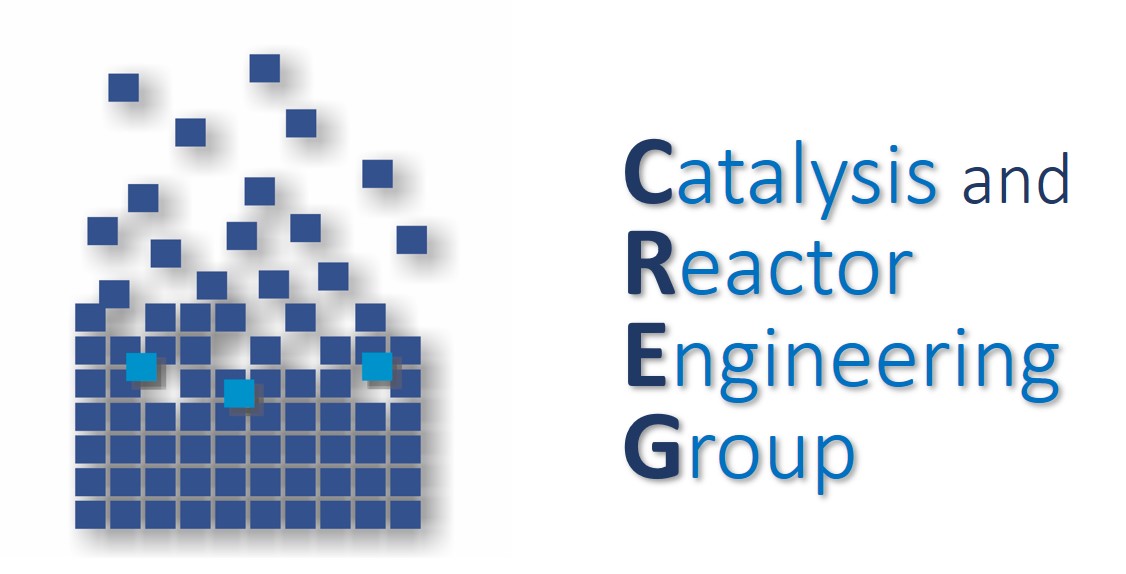
Call: +34 876 555 481
Email: jsoler@unizar.es
Address: c/Mariano Esquillor SN Edificio I+D+i, I3A, 50018, Zaragoza (Spain)
Sideral: See the profile (CV)
ABOUT ME
My beginnings in the field of research took place in October 1995 after obtaining a Bachelor’s degree in Chemistry (June 1995). I joined the Department of Chemical and Environmental Engineering to obtain a Bachelor’s Degree and, later, to do a PhD (1995-2000). The research line consisted in the development of a new redox fluidized bed reactor with two zones, one oxidizing and the other reducing, which would allow to obtain improvements in performance in processes of oxidative dehydrogenation. The results were very promising, especially in obtaining butadiene from n-butane, where the yield was tripled compared to conventional fixed and fluidized bed reactors.
After obtaining a doctorate degree, I joined the fuel cell research group at the CIEMAT fossil fuel department in Madrid to collaborate in the development of the research topic: heterogeneous catalysis in fuel cells: “development of new electrocatalysts, improvements in fuel processing “(2000-2003). This allowed me to become familiar with the preparation of materials for both low (polymeric cells) and high temperature (molten carbonates) fuel cells. I also worked on system integration projects that used fuel cell technology for electricity generation.
For 6 months (2003-2004) I worked as a PhD researcher by obtaining a contract from the Torres Quevedo program in technology transfer and research for the manufacture of fuel cell components in David Fuel Cell Components SL, one of the first private projects in Spain in this technology.
After obtaining a Ramón y Cajal tenure contract (2005-2010), I joined the University Institute for Nanotechnology Research of Aragón (INA) and the Reactor Catalysis and Engineering group (CREG) at the University of Zaragoza, where I led carried out tasks on the preparation and characterization of new materials with high ionic conductivity for use in proton exchange membrane fuel cell membranes capable of operating at high temperatures. As a relevant milestone, the financing of a European project was achieved. In 2008, I obtained a grant from the Torres Quevedo program for a four-month research stay at the University of Newcastle upon Tyne to develop new membranes and electrocatalysts for high temperature proton exchange membrane fuel cells.
In 2010, I joined the Aragón University Engineering Research Institute (I3A) where I work on developing new routes for obtaining higher value-added chemical products through the preparation of catalysts and / or new catalytic reactors. In 2014, I was selected by SENESCYT (Ecuador) to carry out the project “Development of catalysts for the production of hydrogen from biomass from the residues of the banana plant through catalytic gasification in water at supercritical temperature” in the University of Cuenca, Ecuador for 4 months between the years 2014 and 2016.
Of the works carried out, I have presented more than one hundred and forty papers at conferences and I have published 48 indexed articles (h-index = 24). I am co-author of a book, 3 book chapters and 4 international patents. I have supervised 9 Doctoral Theses, 9 Final Degree Projects, 23 Final Degree Projects, 4 Final Master’s Projects and I have tutored two students in the Erasmus program and internships in companies, respectively. I have participated in 42 research projects: 5 regional, 24 national, 12 European and 1 from the University of Zaragoza. I have been a member of the Spanish Zeolite Group since 2005 and of the HYDROGEN Network: “PRODUCTION AND USES IN TRANSPORTATION AND THE ELECTRICITY SECTOR” (H2TRANSEL) of CYTED since 2020.
Orcid: https://orcid.org/0000-0001-9022-2835
Scopus: https://www.scopus.com/authid/detail.uri?authorId=57208335764
PUBLICATIONS
2026
González-Pizarro, R.; Calero-Berrocal, R.; Lasobras, J.; Renda, S.; Rodríguez-Pardo, M. R.; Soler, J.; Menéndez, M.; Herguido, J.
Tuning e-fuel selectivity in sorption-enhanced CO2 hydrogenation over In2O3/ZrO2: The effect of LTA and FAU zeolites Journal Article
En: Fuel, vol. 406, pp. 136974, 2026, ISSN: 0016-2361.
@article{GONZALEZPIZARRO2026136974,
title = {Tuning e-fuel selectivity in sorption-enhanced CO2 hydrogenation over In2O3/ZrO2: The effect of LTA and FAU zeolites},
author = {R. González-Pizarro and R. Calero-Berrocal and J. Lasobras and S. Renda and M. R. Rodríguez-Pardo and J. Soler and M. Menéndez and J. Herguido},
url = {https://www.sciencedirect.com/science/article/pii/S0016236125026997},
doi = {https://doi.org/10.1016/j.fuel.2025.136974},
issn = {0016-2361},
year = {2026},
date = {2026-01-01},
journal = {Fuel},
volume = {406},
pages = {136974},
abstract = {The e-fuels synthesis via CO2 hydrogenation and the Sorption Enhanced Reaction technology are captivating strategies for CO2 utilization and the integration of renewable energy sources. This study focuses on enhancing the conversion of CO2 over an In2O3/ZrO2 catalyst by incorporating LTA zeolites (3A and 4A) and a FAU zeolite (13X). Key operational parameters, such as temperature (T), Gas Hour Space Velocity (GHSV), type of zeolite, and Zeolite: Catalyst mass ratio (Z/C), were systematically varied. LTA zeolites (3A and 4A) provided the highest CO2 conversions. The introduction of a water-adsorbing solid into the reactor significantly altered the products yield and selectivity. While the selectivity towards CH4, CH3OH, and C2H6O appeared to lay on the type of zeolite, the selectivity towards CO remained unaffected. Zeolite 3A demonstrated the greatest enhancement in selectivity towards CH4 and CH3OH, whereas the synthesis of C2H6O was favored by zeolites 4A and 13X. The Zeolite:Catalyst mass ratio also played a crucial role in process performance, influencing both CO2 conversion and product selectivity. Increasing this ratio improved CO2 conversion and reduced CO selectivity under all operating conditions, while CH4 selectivity increased. However, the selectivity toward CH3OH and C2H6O exhibited an anomalous and complementary behavior. While a maximum was observed for DME, a minimum was registered in methanol production, suggesting a dependency of the dehydration reaction kinetics on the amount of water produced during the reaction.},
keywords = {},
pubstate = {published},
tppubtype = {article}
}
González-Pizarro, R.; Renda, S.; Lasobras, J.; Soler, J.; Menéndez, M.; Herguido, J.
Low loading copper-based catalysts for effective CO2 hydrogenation to methanol Journal Article
En: Fuel, vol. 408, pp. 137642, 2026, ISSN: 0016-2361.
@article{GONZALEZPIZARRO2026137642,
title = {Low loading copper-based catalysts for effective CO2 hydrogenation to methanol},
author = {R. González-Pizarro and S. Renda and J. Lasobras and J. Soler and M. Menéndez and J. Herguido},
url = {https://www.sciencedirect.com/science/article/pii/S001623612503368X},
doi = {https://doi.org/10.1016/j.fuel.2025.137642},
issn = {0016-2361},
year = {2026},
date = {2026-01-01},
journal = {Fuel},
volume = {408},
pages = {137642},
abstract = {Methanol synthesis via CO2 hydrogenation is an emerging Power-to-Liquid (PtL) technology aimed to accelerate the energy transition and the defossilization of key sectors, particularly maritime transport. This study focuses on the study of low loading formulations, to minimize the catalyst cost. Key operational variables including temperature (T), Weight Hourly Space Velocity (WHSV), copper and zinc loadings, and aging state were systematically varied. An overall active phase loading of 10 %wt emerged as optimal. Within this total loading, a 5 %wtCu-5 %wtZn/ZrO2 catalysts delivered higher methanol productivity than 10 %wtCu/ZrO2; however, the bimetallic catalysts showed pronounced deactivation under water-rich atmospheres, establishing 10 %wtCu/ZrO2 as the most promising catalysts. Operating temperature and WHSV exerted a strong, synergistic influence on CH3OH formation; in particular, increasing WHSV shifted the reaction away from thermodynamic control and boosted methanol synthesis. Finally, the catalytic performance of these low-loading catalysts was benchmarked against high-copper-loading methanol catalysts reported in the literature by critically compare their activities as a function of the residence time (τ) calculated at reaction conditions. This assessment revealed that the proposed formulation is highly competitive when compared to most conventional formulation, with a maximum methanol space time yield (STYCH3OH) of 3.9 gCH3OH gCu-1 h-1. This comparison confirms that the catalysts proposed in this study could offer a remarkably more efficient use of the active phase than the conventional high-copper-loading catalysts.},
keywords = {},
pubstate = {published},
tppubtype = {article}
}
Renda, Simona; Soler, Jaime; Menéndez, Miguel; Herguido, Javier
Doped In2O3/ZrO2 catalysts to drive selectivity toward DME in one-pot CO2 hydrogenation Journal Article
En: Applied Catalysis A: General, vol. 710, pp. 120682, 2026, ISSN: 0926-860X.
@article{RENDA2026120682,
title = {Doped In2O3/ZrO2 catalysts to drive selectivity toward DME in one-pot CO2 hydrogenation},
author = {Simona Renda and Jaime Soler and Miguel Menéndez and Javier Herguido},
url = {https://www.sciencedirect.com/science/article/pii/S0926860X25005848},
doi = {https://doi.org/10.1016/j.apcata.2025.120682},
issn = {0926-860X},
year = {2026},
date = {2026-01-01},
journal = {Applied Catalysis A: General},
volume = {710},
pages = {120682},
abstract = {This study investigates single-pass dimethyl ether synthesis at mild pressure conditions using novel bifunctional catalysts based on indium-modified formulations and incorporating Ni, Cu, Pt, and Pd as active metals. Additionally, the substitution of the conventional HZSM-5 zeolite with 4A zeolite as the dehydration component was evaluated. Although 4A zeolite exhibited lower dehydration activity, it contributed to an overall improvement in DME selectivity. The incorporation of secondary metals into the In2O3-ZrO2 formulation reduced catalytic activity but enhanced selectivity, ultimately increasing DME yield. The formation of by-products such as light olefins and methane was significantly dependent on the metal used: Ni, Pt, and Pd reduced olefin production, though Ni promoted excessive methane formation across the whole temperature range. Notably, the Pt-based catalyst completely suppressed by-product formation across the temperature range studied. While the In2O3-ZrO2-based catalysts generally displayed lower space–time yields than the commercial reference, they achieved comparable performance at 280 °C. Due to their superior selectivity, these formulations are promising for developing even better performing catalysts, to be excellent candidates in industrial processes, where the operation with recycle loops requires a high product purity.},
keywords = {},
pubstate = {published},
tppubtype = {article}
}
2025
González Pizarro, Rodrigo; Lasobras Laguna, Javier; Renda, Simona; Soler Herrero, Jaime; Menéndez, Miguel; Herguido, Javier
vol. 13, 2025.
@proceedings{GonzálezPizarro_LasobrasLaguna_Renda_SolerHerrero_Menéndez_Herguido_2025,
title = {Intensificación del proceso para la producción de gas de síntesis via (LT-rWGS): un reactor de lecho fluidizado con alimentación continua de sorbente (CSF)},
author = {González Pizarro, Rodrigo and Lasobras Laguna, Javier and Renda, Simona and Soler Herrero, Jaime and Menéndez, Miguel and Herguido, Javier},
url = {https://papiro.unizar.es/ojs/index.php/jji3a/article/view/11917},
doi = {10.26754/jji-i3a.202511917},
year = {2025},
date = {2025-07-01},
urldate = {2025-07-01},
journal = {Jornada de Jóvenes Investigadores del I3A},
volume = {13},
keywords = {},
pubstate = {published},
tppubtype = {proceedings}
}
González-Pizarro, R.; Lasobras, J.; Soler, J.; Herguido, J.; Menéndez, M.
Proof of concept for a sorption-enhanced reactor with continuous sorbent feeding (CSF): application to green methanol production Journal Article
En: Chemical Engineering Journal, vol. 517, pp. 164562, 2025, ISSN: 1385-8947.
@article{GONZALEZPIZARRO2025164562,
title = {Proof of concept for a sorption-enhanced reactor with continuous sorbent feeding (CSF): application to green methanol production},
author = {R. González-Pizarro and J. Lasobras and J. Soler and J. Herguido and M. Menéndez},
url = {https://www.sciencedirect.com/science/article/pii/S1385894725053987},
doi = {https://doi.org/10.1016/j.cej.2025.164562},
issn = {1385-8947},
year = {2025},
date = {2025-01-01},
journal = {Chemical Engineering Journal},
volume = {517},
pages = {164562},
abstract = {A new reactor for process intensification using sorption enhanced reaction is described. The novelty compared with most experimental work is that a continuous sorbent feeding (CSF) provides a steady state operation. The sorbent increases the reaction rate of a reversible reaction. The reactor is based on the phenomena of segregation of solids in fluidized bed reactors by using a catalyst and a sorbent. Under certain conditions of density and particle size, the two solids segregate and the sorbent may be removed from the bed with only a small content of catalyst. The system has been experimentally tested in the hydrogenation of CO2 to methanol, using a zeolite as sorbent. A significant increase in CO2 conversion was achieved compared with the same reactor without sorbent.},
keywords = {},
pubstate = {published},
tppubtype = {article}
}

